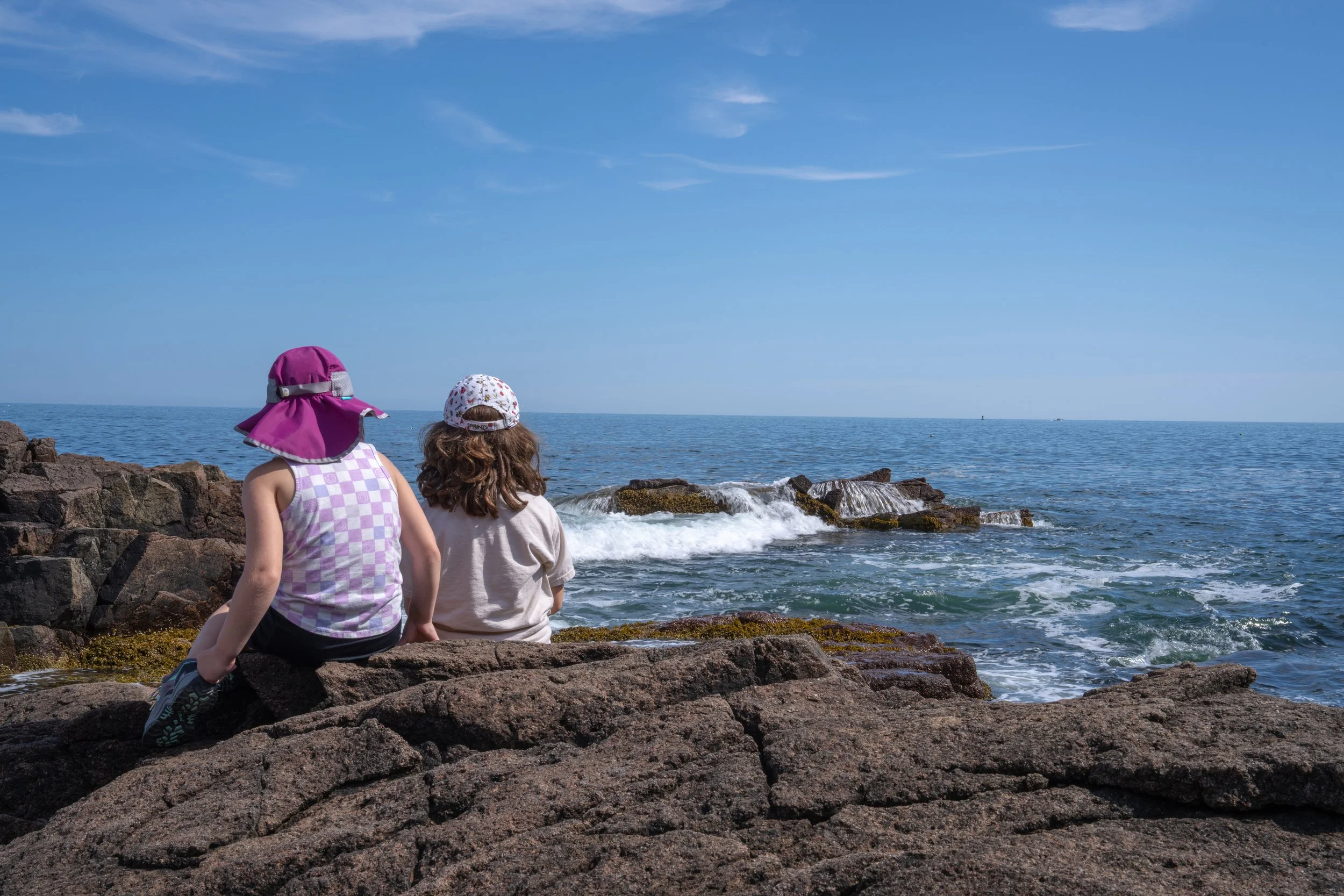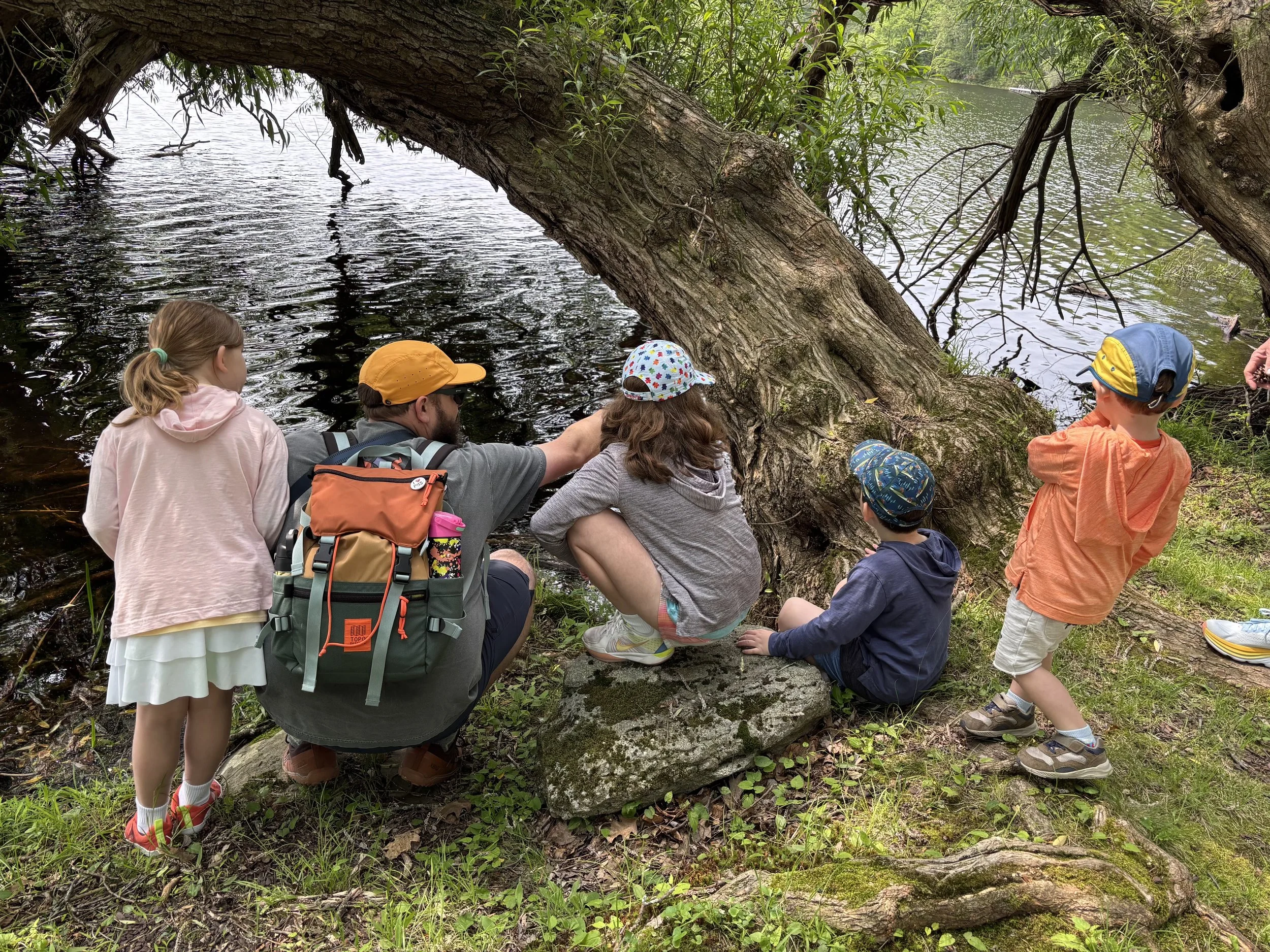A Pedagogy of Dwelling
What does it mean to dwell in the more-than-human world? How can we learn to dwell in our places of learning? How can we create places of dwelling?
These are the questions that we are aiming to answer with a framework called A Pedagogy of Dwelling.
To Dwell
To dwell phenomenologically is to inhabit the world with attention. It is a way of noticing textures, rhythms, and relationships that shape life in a place. Dwelling means allowing the land, sky, seasons, and more-than-human world to matter in how we think, feel, and act. It is the opposite of rushing through the world as simply scenery, it is an act of living with the world directly.
The Fourfold
Martin Heidegger, one of the founding fathers of phenomenology, called dwelling a gathering of the fourfold - the earth, the sky, divinity, and mortals. For Heidegger, the earth is the ground that sustains us, sky is the weather and light that hold our days, divinities are the mysteries and meanings that call us beyond ourselves, and mortals are those who live and die.
From Philosophy to Pedagogy
The notion of dwelling can teach us more about how we frame education. This can take us deeper than place-based learning, experiential learning, or social-emotional learning, this can lead us to a framework for ontological learning - a framework for teaching students how be in the world.
A Pedagogy of Dwelling
A pedagogy of dwelling begins with a belief that learning is not an abstract exercise, it is rooted in the places we inhabit. To dwell is to live attentively with the land, the sky, the seasons, and the begins (human and more-than-human) that shape our experience. In education, this means seeing place and time not as a neutral backdrop but as a co-teacher. One that shapes perception, identity, and understanding. Drawing from phenomenology and ecophenomenology, a pedagogy of dwelling invites us to slow down, to notice, and to let our surroundings matter in the learning process. It resists the pull of decontextualized curriculum by grounding inquiry in lived experience, asking students and teachers alike to be present to where they are, when they are, and with whom they are. This is not an add-on, it is a reorientation toward a pedagogy that attunes to the world around us.
A pedagogy of dwelling builds on the gathering of the fourfold with a a bringing-together of these core tenets:
A Pedagogy of the Earth - teaching that is grounded in our earthly relations with an attunement to the geology, biology, topography, and natural systems that surround us and the more-than-human world.
A Pedagogy of the Sky - teaching that follows natural cycles of time, that disrupts linear future/past thinking and draws us into presence.
A Pedagogy of Divinity - teaching that accepts the subjectivity of life where objective science is an important layer but not the entire picture. This is teaching that allows for mysteries to be and to unfold as we learn, together.
A Pedagogy of Mortality - teaching with the knowledge that matter, being, epistemologies, and ontologies shift, die, are reborn, evolve, and recycle over time. This is an acceptance of the literal and metaphorical cycles of decay and rebirth that define our lives.






